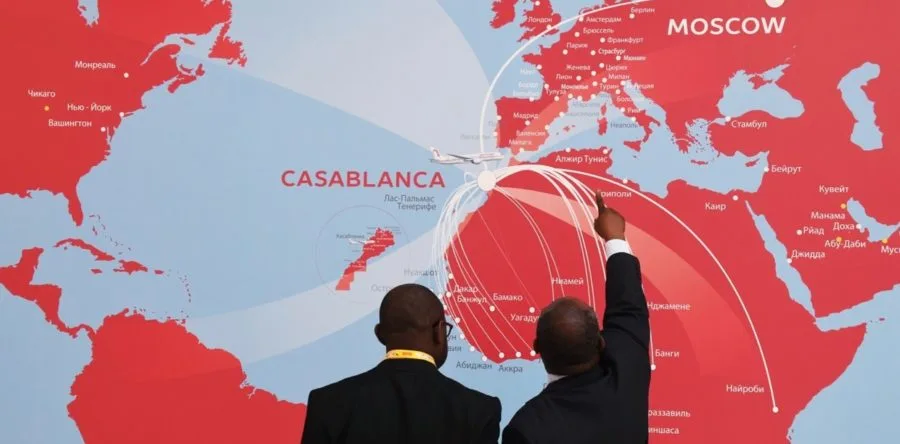The surge in Russia’s engagement in Africa is multifaceted, encompassing diplomatic, economic, military, and strategic dimensions.
Since the Ukraine crisis, this engagement has seen significant developments.
Vladimir Putin’s discussions with South Sudan’s Salva Kiir signified Russia’s interest in establishing stronger regional trade and energy relationships.
Their meetings were emblematic of a larger narrative: African nations exploring avenues beyond Western influence.
This sentiment was not restricted to high-level meetings.
Even on the ground, Russia found support, with South African public demonstrations showcasing a preference for Russia over Western powers.
General Khalifa Haftar of Libya’s Moscow visit was another testament to the depth of Russia’s historical ties with African nations.
With his long-standing Russian connections, this visit was perceived as a move to solidify military and strategic ties.

Economic Expansion
Russia’s economic influence in Africa is growing steadily. Its agricultural prowess is a key instrument.
By providing grain to African nations facing food scarcity, Russia extends humanitarian aid and establishes itself as a dependable partner, which could have broader geopolitical implications.
Ethiopia showcases another dimension of Russia’s economic endeavors.
The country, which has had Russian Ladas as its primary taxis since the 1970s, is now a targeted expansion point for Russian car companies.
AvtoVAZ and GAZ Group’s ambitions in Ethiopia are representative of this trend.
The “Sanctions Road Initiative” emphasizes Russia’s strategy of fostering cost-effective operations in Africa.
Their mutual trade endeavors are evident in the impressive $18 billion trade turnover in 2022.
Military Cooperation
Russia’s military footprint in Africa is expanding.
As a predominant arms supplier, it has secured a significant share of the African arms market, with countries like Algeria and Egypt being notable recipients.
Beyond arms sales, Russia’s military diplomacy shines through forums, exercises, and observer missions.
Private military companies, like the Wagner Group, further cement Russia’s military presence.
Their activities range from training to resource extraction, showcasing Russia’s comprehensive approach to military cooperation.
Challenges and The Way Forward
Despite sanctions and global scrutiny, Russia’s influence in Africa has not dwindled. To address this growing presence, Western nations must craft a multi-pronged strategy.
This includes prioritizing regional stability, enhancing energy diplomacy, fostering strategic partnerships, and offering attractive economic incentives.
Understanding the motivations driving African nations towards Russia and presenting compelling alternatives is essential.
To sum up, Russia’s deepening ties in Africa are a combination of historical connections, strategic military engagements, and economic expansions.
Addressing this requires a well-rounded, insightful approach that prioritizes African interests and offers genuine partnership alternatives.

